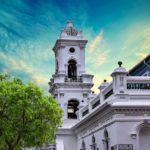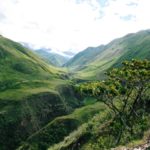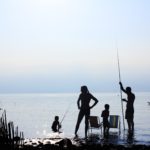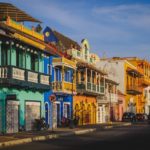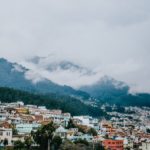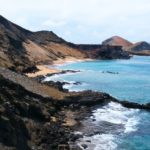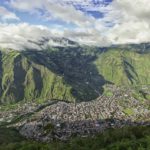Why I Learned to Appreciate Clean Water in Ecuador
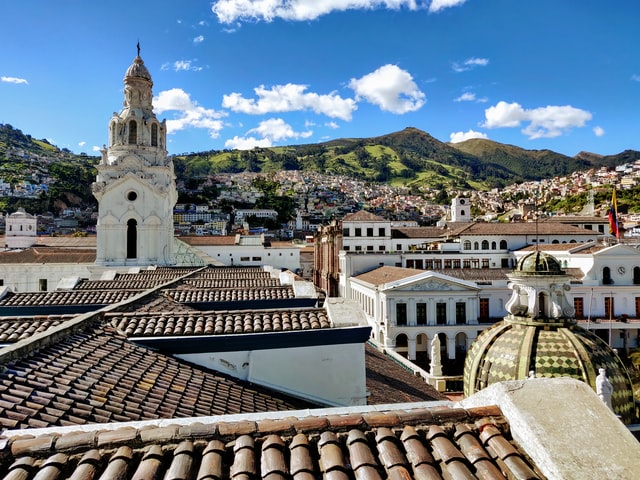
Water is a very precious resource.
We all know this, in theory. But in practice, do we treat water with the respect it deserves? After all, we are mostly water.
I have taken water for granted throughout my life. Growing up in the Great Lakes Basin, before I began my travels abroad, I took water for granted. I was used to seeing freshwater lakes that looked like oceans, accustomed to water magically appearing, clean for the drinking, out of a sparkly metal faucet, and never thought twice about putting my human waste in fresh drinking water flushing it to an unknown place.
And then, I began to travel – and I learn and see how fresh water is valued or not valued in other countries. How in most places, water does not appear from a tap ready to drink, and often doesn’t even appear from a tap. In Ecuador, where I’m currently based, water concerns are far more talked about, far more important, and far more controlled by the people than they are in America.
I recently stayed for three weeks in a valley that is lush green at some moments, while at other moments it’s dry and de-forested to make room for grazing cows. There is an abundance of naturally flowing rivers, where you can comfortably dunk yourself in the frigid and fresh mountain-fed waters, invigorating your every cell. Because there is less development in the mountains near the Vilcabamba Valley and the Podocarpus National Park is near by, the headwaters of local rivers are clean – they haven’t yet had an opportunity to be tainted by humans.
I was used to seeing freshwater lakes that looked like oceans, accustomed to water magically appearing, clean for the drinking, out of a sparkly metal faucet, and never thought twice about putting my human waste in fresh drinking water flushing it to an unknown place.
The people in this valley are hyper aware of their water. This is largely because the water system that they have running to their homes is entirely owned by a collective community co-op. All of the members have a strong stake in how their system is designed, how the water is treated (or not treated), and they also assume the responsibility when water lines are broken (as nearly all the lines are above ground and there are also some aerial runs).
The water that I was drinking and bathing in while I was at my friend’s farm in Vilcabamba was a part of this collective system. This system serves 300 people, both with drinking water (filtered by a physical filtration system only, meaning that no chemicals like fluoride or chlorine are added to the water) and with agricultural irrigation water (which is more turbid, filled with fine particulate).
Every few months there are community meetings that members must attend, or else face a fine. They have one employee who walks the 11-kilometer stretch of pipeline to ensure that it is in fine shape.
In Ecuador, landslides are a common result of heavy rains, and water lines are often damaged in the slides. Repairing these line breaks take time. Sometimes, this can mean days or weeks without water. In the event of a damaged line, one employee, along with a few volunteers, hikes out to the location of the break with tools and repair materials in tow to fix the stretch of pipe that holds life for so many.
We tend not to have any concept of what it takes to get water clean to us, think nothing of putting all sorts of weird wastes in our water, and further, have no control over what chemicals local governments choose to “treat” our drinking water with.
The people on this collective water system are more aware of their need for water, and more aware about how much they use, because they go for weeks with only the water in their 1000-liter cistern (if they even have a cistern). Otherwise, it’s a hike to the river and a potential sick stomach.
Generally, there is a disconnect in Canada and the United States. We tend not to have any concept of what it takes to get water clean to us, think nothing of putting all sorts of weird wastes in our water, and further, have no control over what chemicals local governments choose to “treat” our drinking water with.
When I’m in travel mode, carrying my trusty SteriPEN UV filter with me, I am so much more mindful of the water I consume and the way it makes me feel.
Today, when you sip that sip of fresh water, no matter if you are in Ecuador, Canada, a remote African village, or the Cambodian countryside, take a moment to be grateful for it, and consider ways that you too, can be conscious of the water you consume, pollute, play in, and ultimately, are composed of.
Photo for Why I Learned to Appreciate Clean Water in Ecuador by Unsplash.

